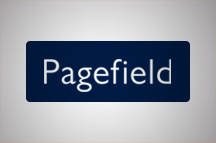 On Wednesday (2nd July), Pagefield, the London Press Club and The Telegraph hosted a discussion on the media, the internet and the 2015 general election. We brought together some of the leading lights of the online journalism community, with Isabel Hardman of the Spectator and Daily Telegraph chairing Mark Ferguson of LabourList, Jim Waterson of Buzzfeed, Harry Cole of Guido Fawkes and The Telegraph’s Chris Hope.
On Wednesday (2nd July), Pagefield, the London Press Club and The Telegraph hosted a discussion on the media, the internet and the 2015 general election. We brought together some of the leading lights of the online journalism community, with Isabel Hardman of the Spectator and Daily Telegraph chairing Mark Ferguson of LabourList, Jim Waterson of Buzzfeed, Harry Cole of Guido Fawkes and The Telegraph’s Chris Hope.
Here are the five things we learnt:
Westminster still doesn’t understand ‘internet politics’
Although every recent election has been touted as the ‘internet election’, our panellists agreed that Westminster has yet to get on top of ‘internet politics’. Their collected experiences read like a spin doctor’s playbook from the days of AOL (ah – a simpler time), with offences ranging from insistent ‘take-down’ requests that misunderstand the permanence of online content, too often comical and occasionally disastrous misappropriations of BuzzFeed for press releases. Westminster’s finest clearly haven’t ‘got’ online politics yet.
The ‘Bubble’ – bigger, but not burst
One of the key selling points of the internet is its supposed ability to broaden the impact of politics and involve more people in debates. While this has been a consequence of the widespread adoption of social media (particularly Twitter) by those in the Westminster Bubble, Isabel Hardman astutely observed the impact of this has been fairly limited. Engagement may have deepened beyond lobby journalists and politicos, but this has done little to engage the wider population. In essence, the Bubble is now bigger, but remains a bubble.
The timings they are a changing
Chris Hope explained the effect that the internet has had on media timing. Only a few brave (and paywalled) souls hang on to late night publication for the morning editions. A story is now much more likely to be broken as soon as the copy is done. Spinners take note. Cole and Ferguson also noted changes in the ‘cadence’ of their site traffic with a bias towards late nights (9pm – midnight sees a big chunk of the traffic). Timing also impacts content itself – consumers of news need their fix quickly. Buzzfeed now grapples with producing content that can load and be consumed between the home and the bus stop.
No more Tuckers
‘Internet politics’ has eroded the old structures of command and control. This was evident in Chris Hope’s observation that advisors in parliament’s gallery often spend PMQs glued to Twitter, rather than watching in person. Westminster spinners shouts of ‘take that down’ have become lost and pressure from SpAds to write a specific line can often result in the opposite being taken.
Known unknowns
Finally, a simple prediction from our panellists – expect the unexpected. Cole espoused the virtues of mobile video for testing politicians, and predicted an apology or resignation due to some off-script-smartphone-captured-gaffery. He also foresaw a larger role for online ‘squirrels’ A.K.A unwelcome distractions (see here) dropped by the enemy to draw focus from announcements, such as Labour’s recent Owl policy – accidental or clever? Hope also warned of a flood of the latest fad, the selfie, so let’s bid a fond farewell to gravitas as we wave in the ‘selfie election’.












